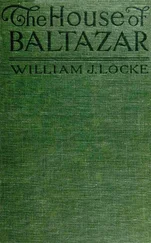William Locke - The Belovéd Vagabond
Здесь есть возможность читать онлайн «William Locke - The Belovéd Vagabond» — ознакомительный отрывок электронной книги совершенно бесплатно, а после прочтения отрывка купить полную версию. В некоторых случаях можно слушать аудио, скачать через торрент в формате fb2 и присутствует краткое содержание. ISBN: , Жанр: foreign_prose, на английском языке. Описание произведения, (предисловие) а так же отзывы посетителей доступны на портале библиотеки ЛибКат.
- Название:The Belovéd Vagabond
- Автор:
- Жанр:
- Год:неизвестен
- ISBN:http://www.gutenberg.org/ebooks/28489
- Рейтинг книги:5 / 5. Голосов: 1
-
Избранное:Добавить в избранное
- Отзывы:
-
Ваша оценка:
- 100
- 1
- 2
- 3
- 4
- 5
The Belovéd Vagabond: краткое содержание, описание и аннотация
Предлагаем к чтению аннотацию, описание, краткое содержание или предисловие (зависит от того, что написал сам автор книги «The Belovéd Vagabond»). Если вы не нашли необходимую информацию о книге — напишите в комментариях, мы постараемся отыскать её.
The Belovéd Vagabond — читать онлайн ознакомительный отрывок
Ниже представлен текст книги, разбитый по страницам. Система сохранения места последней прочитанной страницы, позволяет с удобством читать онлайн бесплатно книгу «The Belovéd Vagabond», без необходимости каждый раз заново искать на чём Вы остановились. Поставьте закладку, и сможете в любой момент перейти на страницу, на которой закончили чтение.
Интервал:
Закладка:
William J. Locke
The Belovéd Vagabond
CHAPTER I
This is not a story about myself. Like Canning's organ-grinder I have none to tell. It is the story of Paragot, the belovéd vagabond – please pronounce his name French-fashion – and if I obtrude myself on your notice it is because I was so much involved in the medley of farce and tragedy which made up some years of his life, that I don't know how to tell the story otherwise. To Paragot I owe everything. He is at once my benefactor, my venerated master, my beloved friend, my creator. Clay in his hands, he moulded me according to his caprice, and inspired me with the breath of life. My existence is drenched with the colour of Paragot. I lay claim to no personality of my own, and any obiter dicta that may fall from my pen in the course of the ensuing narrative are but reflections of Paragot's philosophy. Men have spoken evil of him. He snapped his fingers at calumny, but I winced, never having reached the calm altitudes of scorn wherein his soul has its habitation. I burned to defend him, and I burn now; and that is why I propose to write his apologia , his justification.
Why he singled me out for adoption from among the unwashed urchins of London I never could conjecture. Once I asked him.
"Because," said he, "you were ugly, dirty, ricketty, under-sized, underfed and wholly uninteresting. Also because your mother was the very worst washer-woman that ever breathed gin into a shirt-front."
I did not resent these charges, direct and implied, against my mother. She did launder villainously, and she did drink gin, and of the nine uncared-for gutter-snipes she brought into the world, I think I was the most unkempt and neglected. I know that Sunday-school books tell you to love your mother; but if the only maternal caresses you could remember were administered by means of a wet pair of woollen drawers or the edge of a hot flat-iron, you would find filial piety a virtue somewhat abstract. Verily do earwigs care more for their progeny than did my mother. She sold me body and soul to Paragot for half-a-crown.
It fell out thus.
One morning, laden with his – technically speaking – clean linen, I knocked at the door of Paragot's chambers. He called them chambers, for he was nothing if not grandiloquent, but really they consisted in an attic in Tavistock Street, Covent Garden, above the curious club over which he presided. I knocked, then, at the door. A sonorous voice bade me enter. Paragot lay in bed, smoking a huge pipe with a porcelain bowl and reading a book. The fact of one individual having a room all to himself impressed me so greatly with a sense of luxury, refinement and power, that I neglected to observe its pitifulness and squalor. Nor of Paragot's personal appearance was I critical. He had long black hair, and a long black beard, and long black finger-nails. The last were so long and commanding that I thought ashamedly of my own bitten fingertips, and vowed that when I too became a great man, able to smoke a porcelain pipe of mornings in my own room, my nails should equal his in splendour.
"I have brought the washing, Sir," I announced, "and, please, Sir, mother says I'm not to let you have it unless you settle up for the last three weeks."
I had a transient vision of swarthy, hairy legs, as Paragot leaped out of bed. He stood over me, man of all the luxuries that he was, in his nightshirt. Fancy having a shirt for the day and a shirt for the night!
"Do you mean that you will dispute possession of it with me, vi et armis? "
"Yes, Sir," said I, confused.
He laughed, clapped me on the shoulder, called me David, Jack the Giant-Killer, and bade me deliver the washing-book. I fumbled in the pocket of my torn jacket and handed him a greasy, dog's-eared mass of paper. As soon as his eyes fell on it, I realised my mistake, and produced the washing book from the other pocket.
"I've given you the wrong one, Sir," said I, reaching for the treasure I had surrendered.
But he threw himself on his bed and dived his legs beneath the clothes.
"Wonderful!" he cried. "He is four foot nothing, he looks like a yard of pack-thread, he would fight me for an ill-washed shirt and a pair of holes with bits of sock round them, and he reads 'Paradise Lost'!"
He made a gesture of throwing the disreputable epic at my head, and I curved my arm in an attitude only too familiarly defensive.
"I found it in a bundle of washing, Sir," I cried apologetically.
At home reading was the unforgivable sin. Had my mother discovered me poring over the half intelligible but wholly fascinating story of Adam and Eve and the Devil, she would have beaten me with the first implement to her hand. I had a moment's terror lest the possession of a work of literature should be so horrible a crime that even Paragot would chastise me.
To my consternation he thrust the tattered thing – it was an antiquated sixpenny edition – under my nose and commanded me to read.
"'Of Man's first disobedience' – Go on. If you can read it intelligently I'll pay your mother. If you can't I'll write to her politely to say that I resent having my washing sent home by persons of no education."
I began in great fear, but having, I suppose, an instinctive appreciation of letters, I mouthed the rolling lines not too brokenly.
"What's a Heavenly Muse?" asked Paragot, as soon as I paused. I had not the faintest idea.
"Do you think it's a Paradisiacal back yard where they keep the Horse of the Apocalypse?"
I caught a twinkle in the blue eyes which he bent fiercely upon me.
"If you please, Sir," said I, "I think it is the Bird of Paradise."
Then we both laughed; and Paragot bidding me sit on the wreck of a cane-bottomed chair, gave me my first lesson in Greek Mythology. He talked for nearly an hour, and I, ragged urchin of the London streets, my wits sharpened by hunger and ill-usage, sat spell-bound on my comfortless perch, while he unfolded the tale of Gods and Goddesses, and unveiled Olympus before my enraptured vision.
"Boy," said he suddenly, "can you cook a herring?"
I came down to earth with a bang. Stunned I stared at him. I distinctly remember wondering where I was.
"Can you cook a herring?" he shouted.
"Yes, Sir," I cried, jumping to my feet.
"Then cook two – one for you and one for me. You'll find them somewhere about the room, also tea and bread and butter and a gas-stove, and when all is ready let me know."
He settled himself comfortably in bed and went on reading his book. It was Hegel's Philosophy of History. I tried to read it afterwards and found that it passed my understanding.
In a confused dream of gods and herrings, I set about my task. Heaven only knows how I managed to succeed. In my childish imagination Jupiter was clothed in the hirsute majesty of Paragot.
And I was to breakfast with him!
The herrings and a half-smoked pipe shared a plate on the top of the ricketty chest of drawers. I had to blow the ash off the fish. A paper of tea and a loaf of bread I found in a higgledy-piggledy mixture of clothes, books and papers. My godlike friend had carelessly put his hair-brush into the butter. The condition of the sole cooking utensil warred even against my sense of the fitness of gridirons, and I cleansed it with his towel.
Since then I have breakfasted in the houses of the wealthy, I have lunched at the Café Anglais, I have dined at the Savoy but never have I eaten, never till they give me a welcoming banquet in the Elysian fields, shall I eat so ambrosial a meal as that first herring with Paragot.
When I had set it on the little deal table, he deigned to remember my existence, and closing his book, rose, donned a pair of trousers and sat down. He gave me my first lesson in table-manners.
Читать дальшеИнтервал:
Закладка:
Похожие книги на «The Belovéd Vagabond»
Представляем Вашему вниманию похожие книги на «The Belovéd Vagabond» списком для выбора. Мы отобрали схожую по названию и смыслу литературу в надежде предоставить читателям больше вариантов отыскать новые, интересные, ещё непрочитанные произведения.
Обсуждение, отзывы о книге «The Belovéd Vagabond» и просто собственные мнения читателей. Оставьте ваши комментарии, напишите, что Вы думаете о произведении, его смысле или главных героях. Укажите что конкретно понравилось, а что нет, и почему Вы так считаете.












